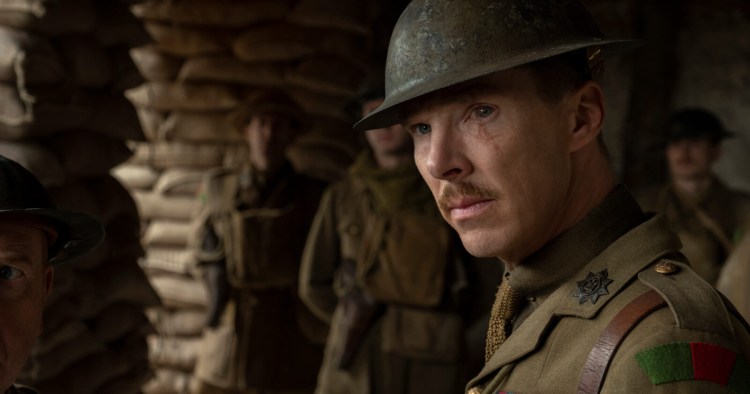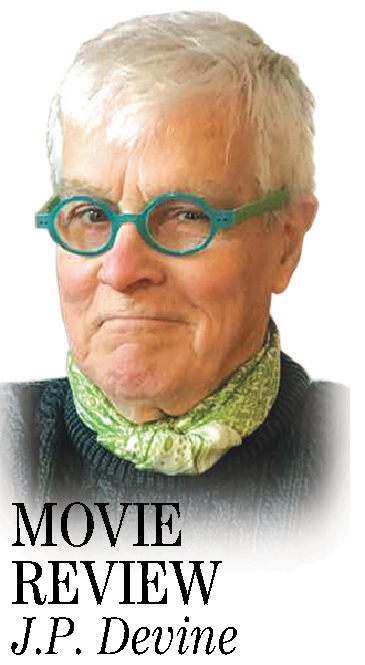In “1917”, we are given two young British soldiers, Lance Corporals Schofield (George MacKay) and Blake (Dean-Charles Chapman) who have just begun their day, dozing off on the grass just above the infamous trenches that illustrate the savagery of the Great War.
After a long trudge through the deep trenches, where the dead share bloody mud with the living, and the soon to be dead, the mood is loaded into our brains.
Our reluctant warriors are given a mission by their commanding officer (an almost unrecognizable Colin Firth) to take a walk that could change history. Can we see hands?
Not far from their trench, the Devonshire unit of 1,600 troops is set to go over the top in a strategic attack where, the British have learned, Germans have deviously laid a trap to annihilate them.
Communications, normally sparse at best, are down, and our young boys are asked to cut through the lines and alert the commanding colonel (Benedict Cumberbatch) of the doomed unit, to step back and stop the attack. They have until the dawn of the next day. Blake is told that he was chosen because his brother, Lieutenant Blake (Andrew Scott, the priest of “Fleabag”) is one of those who will die.
So off they go, up from the trenches, across the “No Man’s” wasteland of shell craters and torn stretches of barbed wire that litter the death-scape like dying Christmas trees, strung with the ornaments of humans, rotting in the damp air and being devoured by the thousands of dog-sized rats.
Along the way, all the impediments of Hell abound, as they fight their way through the dungeon like German trenches, to a deserted farmhouse on a quiet field, where the boys have begun to think that all might not be as bad as feared.
Then, as they watch in awe as a dog fight between German and British fighter planes overhead fight it out, one is shot down and crashes within feet of them. While they are rescuing the pilot from the wreckage, things, as they often do in war, go tragically bad.
Suddenly, the story and all the souls involved are blown off course, and the film becomes a nightmare album of horrors for the survivor.
For the rest of the crossing of Mendes’ cinematic river Styx, we follow the survivor deeper and deeper into darkness.
And then the great race Mendes hopes you’ve been waiting for begins.
As dawn breaks, and with only moments to spare, the long distance runner and fortune’s child, clutching the blood stained message, leaps from the trenches, and as others drop around him, races toward us through a rain of shellfire. Though movie history tells us that he’ll make it to the generals with the dispatch, nothing is for certain.
The entire cast, British to a man (and one woman) are without fault. Then there is Roger Deakins and his camera (“Blade Runner 2049,” “Skyfall,” “Fargo,” “No Country for Old Men”), who will win Best Cinematography. Bet your house on it.
“1917” Best Picture? I would add six, maybe seven Oscars. Bet on it.
J.P. Devine, of Waterville, is a former stage and screen actor.
Send questions/comments to the editors.




Success. Please wait for the page to reload. If the page does not reload within 5 seconds, please refresh the page.
Enter your email and password to access comments.
Hi, to comment on stories you must . This profile is in addition to your subscription and website login.
Already have a commenting profile? .
Invalid username/password.
Please check your email to confirm and complete your registration.
Only subscribers are eligible to post comments. Please subscribe or login first for digital access. Here’s why.
Use the form below to reset your password. When you've submitted your account email, we will send an email with a reset code.